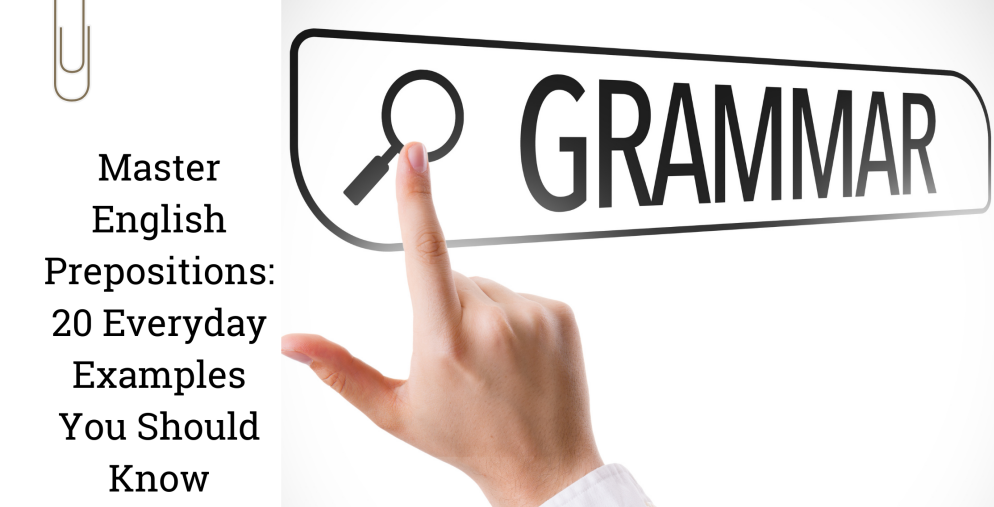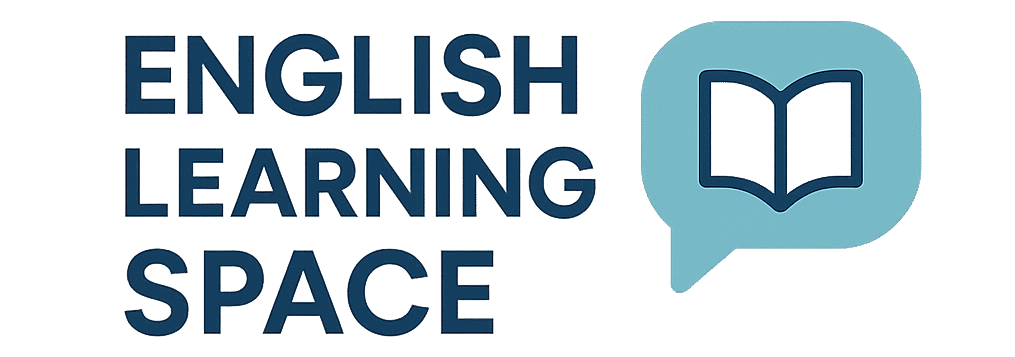
A simple guide for English learners who want to sound natural and fluent
Do you get confused by English prepositions like “in,” “on,” “at,” or “for”?
You’re not alone. Prepositions are small words, but they can be tricky. Even advanced learners make mistakes with them.
In this blog post, you’ll learn:
- What prepositions are
- The most common everyday prepositions
- 20 clear examples
- Tips to remember them
- Common mistakes and how to fix them
What Are Prepositions?
A preposition is a word that shows the relationship between two things.
Prepositions often describe time, place, or direction.
Examples of common prepositions:
in, on, at, to, for, with, from, about, under, over
Why Are Prepositions Important?
Prepositions are used in almost every sentence.
Using them correctly makes your English sound natural, accurate, and professional.
Incorrect prepositions can lead to confusion — even if the rest of your sentence is perfect.
20 Everyday Preposition Examples (With Explanations)
1. In
Use it for months, years, countries, enclosed spaces
- I live in London.
- We met in 2022.
2. On
Use it for specific days and surfaces
- I have a meeting on Monday.
- The keys are on the table.
3. At
Use it for specific times and places
- Let’s meet at 6 PM.
- She’s at the bus stop.
4. To
Shows movement or direction
- I’m going to the office.
5. For
Shows purpose or time duration
- This gift is for you.
- I’ve worked here for 5 years.
6. With
Shows who or what is included
- I had lunch with my manager.
7. From
Shows origin or starting point
- She’s from Italy.
- The train leaves from platform 2.
8. About
Means “related to”
- We talked about the project.
9. Into
Shows movement inside something
- He walked into the room.
10. Out of
Shows movement outside
- She ran out of the building.
11. Over
Means above or across
- The picture is over the sofa.
12. Under
Means beneath
- The pen is under the table.
13. By
Shows proximity or agent of action
- The book is by the window.
- This photo was taken by Sarah.
14. Beside
Means next to
- He sat beside me.
15. Between
Means in the middle of two things
- The bank is between the cafe and the post office.
16. During
Shows time period
- I fell asleep during the meeting.
17. Before
Means earlier than
- Please arrive before 9 a.m.
18. After
Means later than
- We’ll go to lunch after the call.
19. Without
Means not having
- I can’t work without coffee.
20. Across
Means from one side to the other
- The bakery is across the street.
Common Preposition Mistakes
Let’s fix some typical learner errors:
Incorrect: I’m good in English.
Correct: I’m good at English.
Incorrect: She depends of her team.
Correct: She depends on her team.
Incorrect: We arrived to the airport.
Correct: We arrived at the airport.
Quick Tips to Remember
- Use “at” for points in time and places
- Use “on” for surfaces and days
- Use “in” for longer periods and enclosed spaces
- Listen for prepositions in movies, songs, and podcasts — it helps
Practice Time: Can You Choose the Right Preposition?
- I usually wake up ___ 7 AM.
- She put the phone ___ her bag.
- They moved ___ Canada last year.
- We met ___ Monday.
- He lives ___ the city centre.
Answers at the end**
Want to Use Prepositions Naturally When You Speak?
You’ve just learned 20 useful prepositions — great job.
If you still feel unsure when speaking or writing, you’re not alone.
I help professionals improve their spoken and written English, so they feel confident in every situation.
Book a private session with me to fix your grammar, build fluency, and feel more natural in conversations.
Click here to learn more and get started https://www.englishspeakingprofessionals.com/courses/private-lessons
The answers
1. at 2. in 3. to 4. on 5. in
